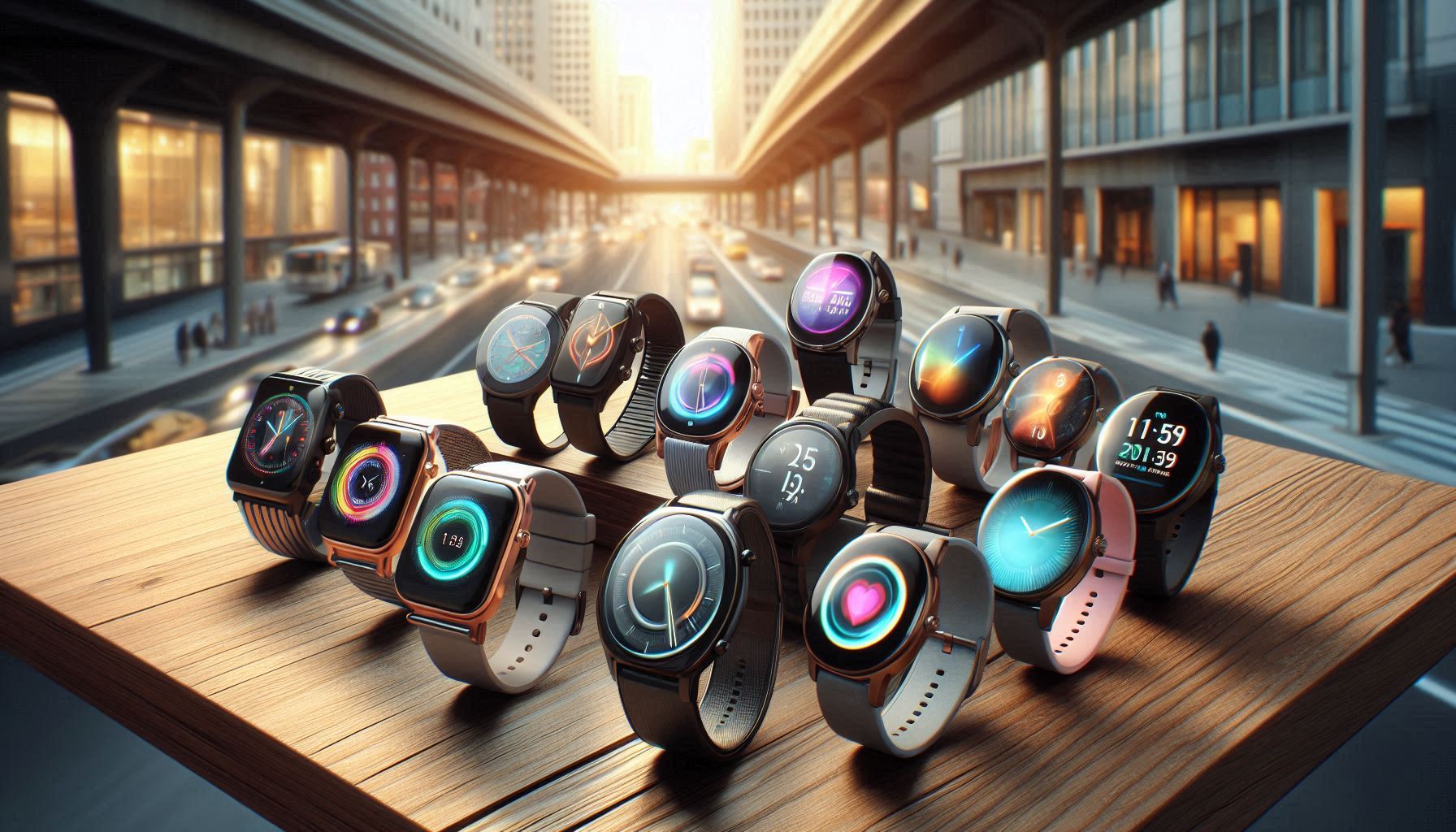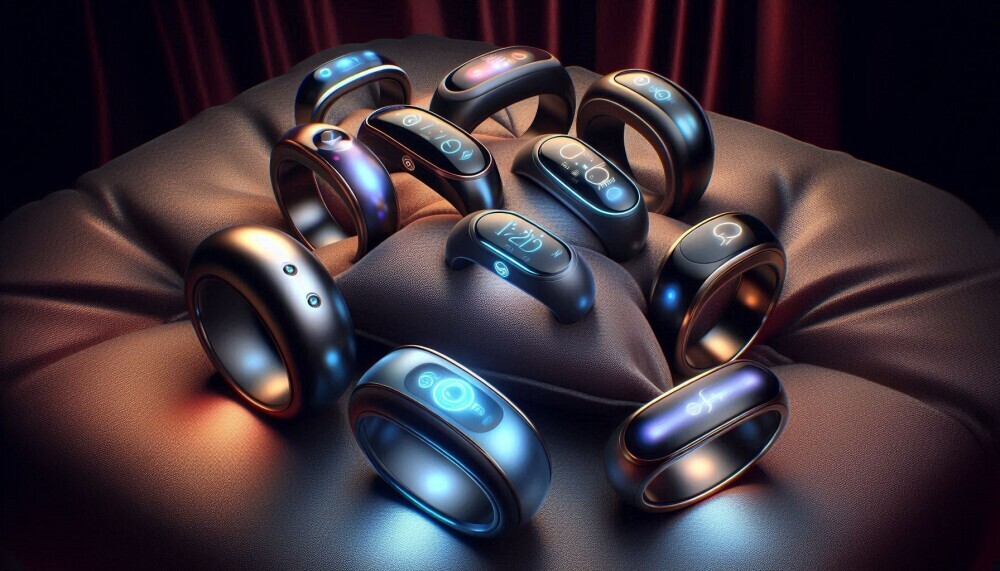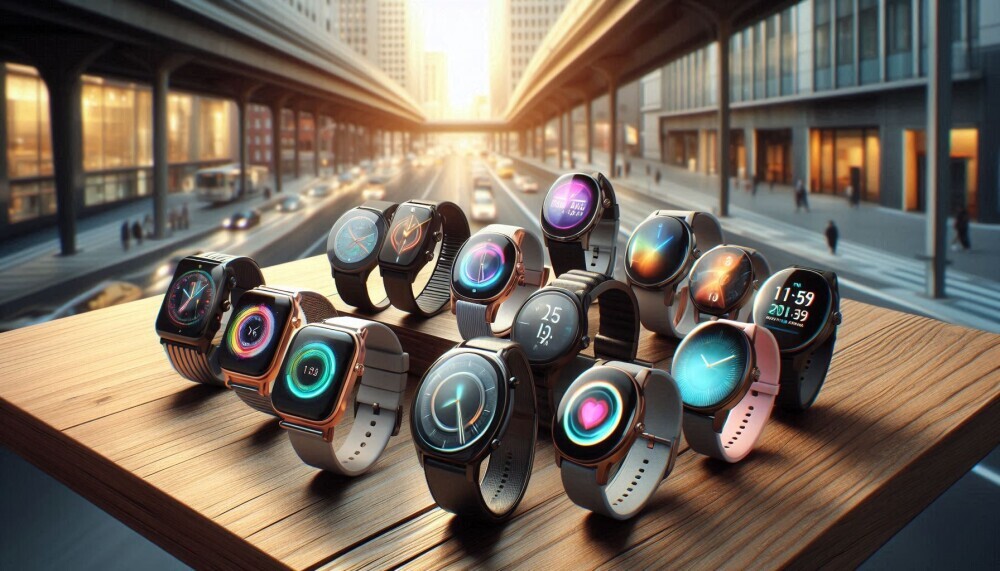A very warm welcome to Vertevia. In this comparison review article, we shall be looking at Smart Rings Vs Smartwatches: What’s Best For Fitness? Are you currently a fitness tracker user? What are your thoughts on them? Are you feeling the benefit of using one? Please let us know in the comments section at the bottom of this page. Right. let’s begin!
Introduction
In the ever evolving world of wearable health technology, consumers are faced with an expanding range of options for tracking fitness, monitoring health, and enhancing daily wellness. Among the most popular choices are smartwatches and smart rings. Both offering powerful tools to collect biometric data, deliver real time feedback, and support healthier lifestyles. But as the market grows, so does the question. When it comes to fitness tracking, which devices deliver more? Smart rings or smartwatches?
Smartwatches have been the go to fitness companions for years, loaded with features such as heart rate monitoring, GPS, workout detection, and more. However, smart rings have recently gained momentum, offering discreet, minimalistic designs with increasing sensor accuracy and battery efficiency. This article explores how each type of wearable stacks up in terms of fitness tracking, usability, comfort, data accuracy, price, and overall user experience, helping you determine which is the better fit for your fitness goals.
Why Fitness Enthusiasts Turn to Wearables
The demand for fitness wearables has surged in recent years as people become more conscious of their health and seek tools that offer insight, motivation, and accountability. Whether you’re a seasoned athlete or a beginner embarking on a wellness journey, wearable devices provide tangible data that can guide your exercise, recovery, and sleep patterns. They also integrate seamlessly with apps and coaching platforms, making it easier to stay on track.
While traditional fitness trackers focused primarily on steps and calorie counts, today’s wearables offer far more advanced metrics, including VO2 max, sleep stages, HRV (heart rate variability), blood oxygen levels, and even stress monitoring. The choice between a smartwatch and a smart ring can have a significant impact on your daily use, accuracy of insights, and overall convenience.
Smart Rings for Fitness: Features, Pros & Cons
Key Features:
- Continuous heart rate monitoring
- Sleep tracking with REM and deep sleep data
- HRV and stress tracking
- Activity recognition
- Long battery life (3 to 7 days or more)
- Lightweight and minimal design
Pros:
- Incredibly discreet and stylish
- Comfortable for 24/7 wear, including sleep
- Typically longer battery life than smartwatches
- No screen means fewer distractions
- Excellent for recovery and sleep based metrics
Cons:
- Limited or no display. All data accessed via companion app
- Fewer direct fitness features (e.g., no GPS)
- Smaller surface area may limit the accuracy of some sensors
- Not suitable for all sports or rugged conditions
Top Smart Rings For Fitness
Oura Ring Gen 3
-
- Price: £279 plus optional monthly membership
- Best For: Sleep, readiness, recovery tracking
- Key Features: Temperature sensors, SpO2 tracking, menstrual cycle prediction, HRV, daily readiness score
Ultrahuman Ring Air
-
- Price: £299
- Best For: Holistic wellness insights
- Key Features: Metabolic rate tracking, HRV, sleep, movement tracking, zero subscription
RingConn Smart Ring
-
- Price: £200 to £220
- Best For: Budget conscious users seeking fitness feedback
- Key Features: Real time heart rate, blood oxygen, and sleep analytics
Smartwatches for Fitness: Features, Pros & Cons
Key Features:
- Built in GPS
- Heart rate, SpO2, ECG, and skin temperature sensors
- Workout tracking across multiple sports
- On wrist display for stats, music, notifications
- App ecosystem and third party integrations
Pros:
- Comprehensive fitness tracking including real time workout data
- On screen coaching and guided workouts
- Better suited for sports like running, cycling, and swimming
- Integration with fitness apps and smart assistants
Cons:
- Bulkier and less comfortable for sleep
- Shorter battery life (1 to 3 days on average)
- Screen can be distracting for some
- Needs regular charging, especially with GPS use
Top Smartwatches For Fitness
Apple Watch Series 9
-
- Price: From £399
- Best For: Apple ecosystem users
- Key Features: ECG, HRV, blood oxygen, fitness rings, GPS, guided meditations, Apple Fitness+ integration
Garmin Venu 3
-
- Price: £349
- Best For: Advanced sports tracking
- Key Features: Multi-GNSS GPS, stress and sleep score, HRV status, body battery, long battery life (up to 14 days)
Fitbit Sense 2
-
- Price: £239
- Best For: Wellness focused users
- Key Features: Stress management, sleep tracking, ECG, EDA sensor, daily readiness score
Samsung Galaxy Watch 6
-
- Price: £329
- Best For: Android users
- Key Features: Bio Active sensor, body composition, sleep tracking, workout detection
Smart Ring vs Smartwatch: Side by Side Comparison
- Design & Discreetness
- Smart Rings: Sleek, minimalist, and often indistinguishable from regular rings.
- Smartwatches: Larger, screen based, and more noticeable on the wrist.
- Comfort
- Smart Rings: Lightweight and unobtrusive, ideal for 24/7 wear.
- Smartwatches: Comfortable, but may feel bulky to some users, especially during sleep.
- Battery Life
- Smart Rings: Typically 4 to 7 days.
- Smartwatches: 1 to 2 days for high end models. Up to a week for fitness focused devices.
- Sleep Tracking
- Smart Rings: Exceptional accuracy and detailed insights into REM, deep sleep, and readiness.
- Smartwatches: Varies by model; generally strong but may disrupt sleep due to size.
- Workout Tracking
- Smart Rings: Limited to general activity and readiness metrics.
- Smartwatches: Real time heart rate, calories burned, GPS, activity specific tracking.
- Display & Interaction
- Smart Rings: No display. All data accessed via mobile app.
- Smartwatches: Full colour screens, interactive apps, instant data access.
- Notifications & Apps
- Smart Rings: No notifications or third party apps.
- Smartwatches: Full notifications, app integrations, call and text capabilities.
- Health Monitoring
- Smart Rings: Heart rate, SpO2, temperature, recovery scores.
- Smartwatches: ECG, blood oxygen, stress tracking, heart rate, and more.
- Use Cases
- Smart Rings: Best for recovery, sleep, and daily wellness tracking.
- Smartwatches: Best for active training, real time feedback, and productivity.
- Price Range
- Smart Rings: £250 to £300.
- Smartwatches: £200 to £500 depending on brand and features.
FAQs
- Can smart rings track workouts as well as smartwatches?
-
- Smart rings are more focused on recovery, heart rate, and sleep. They don’t offer detailed workout data like GPS tracking.
- Are smartwatches better for athletes?
-
- Yes, especially those who require detailed stats, heart zones, GPS routes, and performance metrics.
- Which is more accurate: smart ring or smartwatch?
-
- Both are highly accurate for different metrics. Rings are often better for sleep and HRV, while watches excel in workout tracking.
- Can I wear both a smartwatch and a smart ring?
-
- Absolutely. Many users combine both to maximize data collection. Rings for recovery, watches for exercise.
- Are smart rings suitable for women or smaller hands?
-
- Yes. Most brands offer a wide size range and sleek designs ideal for all hand sizes.
- Do smart rings work with iOS and Android?
-
- Yes, most major smart rings like Oura, Ultrahuman, and RingConn are compatible with both platforms.
Getting the Most From Your Wearable Health Tech
To maximise the benefits of your smart ring or smartwatch, consistency is key. Wear the device regularly to gather continuous data and establish reliable baselines. Sync with a health app that compiles and interprets your data to help guide training, rest, and recovery decisions.
Pay attention to trends rather than isolated stats. For instance, a single bad night’s sleep isn’t alarming. However, a downward trend in your readiness score or HRV may indicate overtraining or stress. Combine wearable insights with good nutrition, hydration, and sleep hygiene for the best results.
Conclusion
Choosing between a smart ring and a smartwatch ultimately depends on your fitness goals and lifestyle. Smart rings offer unmatched comfort, excellent recovery data, and longer battery life, making them ideal for health tracking without the bulk. They shine in recovery and sleep analysis, which is perfect for those who want passive insights.
On the other hand, smartwatches provide a comprehensive fitness eco system. They are powerful tools for athletes and active users needing real time data, guided workouts, and GPS based stats. If your focus is performance and daily activity tracking, the smartwatch may be your best bet. For those prioritising wellness, stress recovery, and sleep quality, a smart ring could be your perfect match.
Our Thanks!
We would like to express our sincere thanks to you for reading this article on Smart Rings Vs Smartwatches: What’s Best For Fitness? Hopefully, it has helped you with your search for suitable fitness trackers. If you would like some further reading, take a look through our blog! There are lots of really helpful and informative articles on a range of wearable health tech topics. You might like reading one of our related articles which is titled Oura Ring Vs Fitbit: Which Fitness Tracker Wins?
Please let us know which type and brand of fitness tracker you’re using currently or considering buying in the comments section below!
**Here is a bit of transparency. Our website www.vertevia.com does contain affiliate links and Amazon links. So, if you did make a purchase through the website, we may receive a small commission. This is at no extra cost to you whatsoever. It’s just a way for you to support us as we continue to bring you top quality content**
All the best!
Eamon





